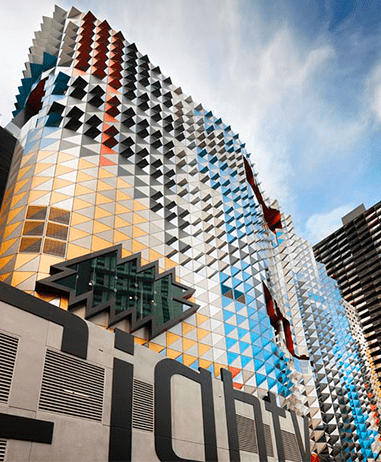RMIT University – SAFe for Agility Transformation | Scaled Agile
RMIT University – SAFe Implementation for Business Agility Transformation

“The first Program Increment showed both the potential of the train to deliver value more quickly, and also the challenges facing its success. It also successfully delivered a number of features for release.”
—Em Campbell-Pretty, CEO, Pretty Agile
Mục lục bài viết
Industry:
Education
Solution:
SAFe®
Results:
- Positive shift in employee NPS
- Improvement in business engagement
- Reduction in cycle time
- Increase in release frequency
Overview
Since April 2014, Scaled Agile Partner, Context Matters (now Pretty Agile), under the lead of Em Campbell-Pretty, has been supporting the Royal Melbourne Institute of Technology (aka RMIT University) with implementing SAFe for effective business agility transformation. RMIT is Australia’s largest university and, as the name suggests, is known for its technology focus. On November 6, 2014, Catherine Haugh (the SAFe Release Train Engineer-RTE) and some of her team presented their success story at the ANZ Oracle Higher Education User Group conference.
At the time, the presentation at HEUG outlined the journey of a new Agile Release Train, describing the practices and approach of the train as well as the challenges met implementing this new way of working while introducing it to the wider organisation. A sister-presentation was delivered by the Academic Registrar, Maddy McMaster, outlining the experience of going Agile from the business point of view. Maddy is the business owner of RMIT’s Student Administration Management System (SAMS) and the business sponsor of the Student Administration Agile Release Train (StAART).

StAART came into being following a shift within Information Technology Services (ITS) at RMIT towards Lean and Agile practices and a recognition that the ability to scale capability would be critical to ongoing success. SAFe was chosen to address that need and the train stood up in June 2014.
StAART is the delivery mechanism for three major projects in the Student Administration Portfolio as well as day-to-day operational work requests made to enhance and support Student Administration systems. It is made up of seven feature teams which they call squads, supported by a delivery services team – about 60 people in all.
StAART works predominantly with Oracle’s PeopleSoft-Campus Solutions application environment, tailoring the software to suit the organisation’s student administrative requirements through configuration and development. RMIT’s customised Campus Solutions system is known as SAMS. PeopleSoft is a commercial off the shelf (COTS) application.
Early Results
The first Program Increment showed both the potential of the train to deliver value more quickly and also the challenges facing its success. It also successfully delivered a number of features for release. Even though it is early days RMIT has already seen a positive shift in employee NPS, an improvement in business engagement, a reduction in cycle time and an increase in release frequency. The overarching challenge has been one of cultural change – StAART commenced life in a distinct waterfall environment.
Thank you to Catherine Haugh (RMIT), Maddy McMaster (RMIT) and Em Campbell-Pretty for sharing their story with the SAFe community.
Update – October, 2015:
At the 2015 Agile Australia conference, Catherine presented an update on the StAART and its successes, including a dramatic improvement in NPS ratings from stakeholders. Her presentation includes video testimonials from the teams and ART stakeholders, as well as the data detailing the Net Promoter Scores before the ART launch and after.
Additional Reading
For a deeper dive into this SAFe experience, download the two presentations below.
Download Part 1 of RMIT Case StudyDownload Part 2 of RMIT Case Study
Share:
Back to: All Case Studies
Explore more Case Studies
Suggested Case Study:
Capital One
Read the Case Study











